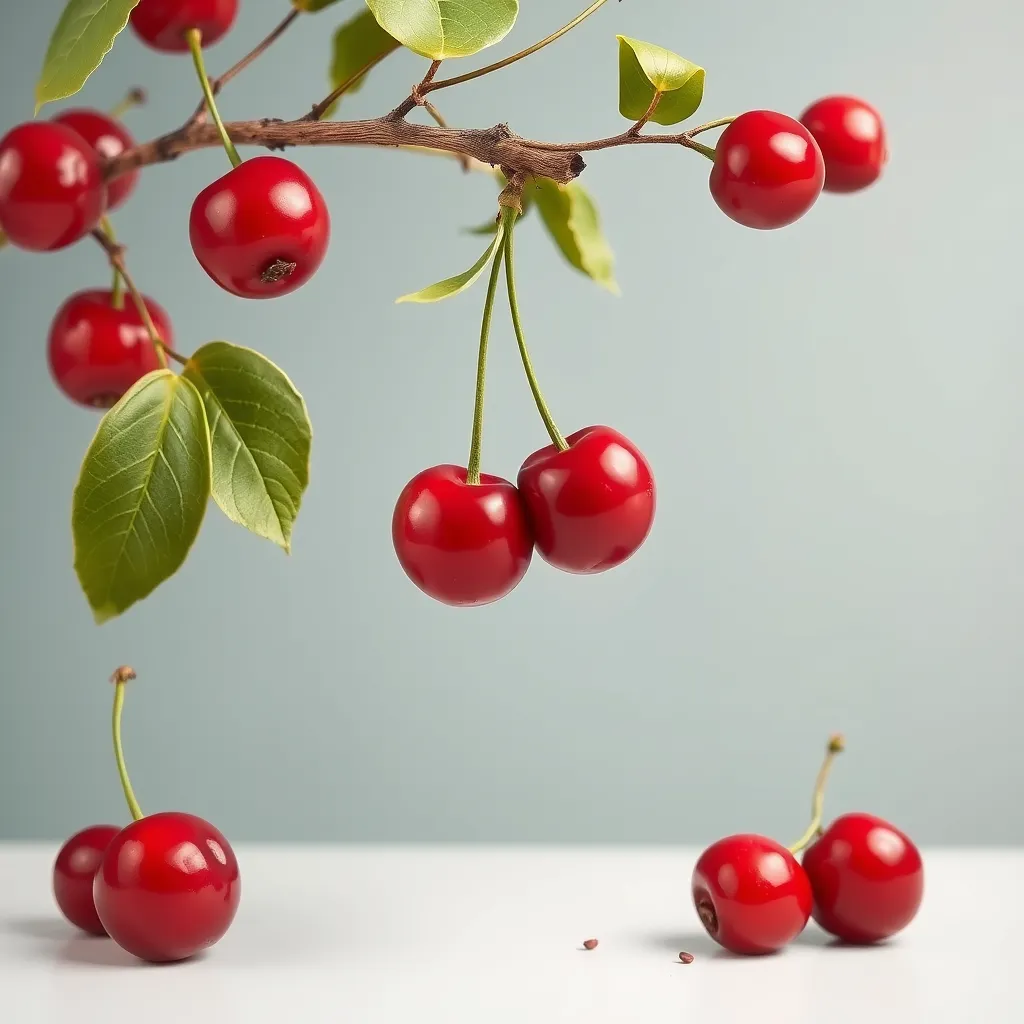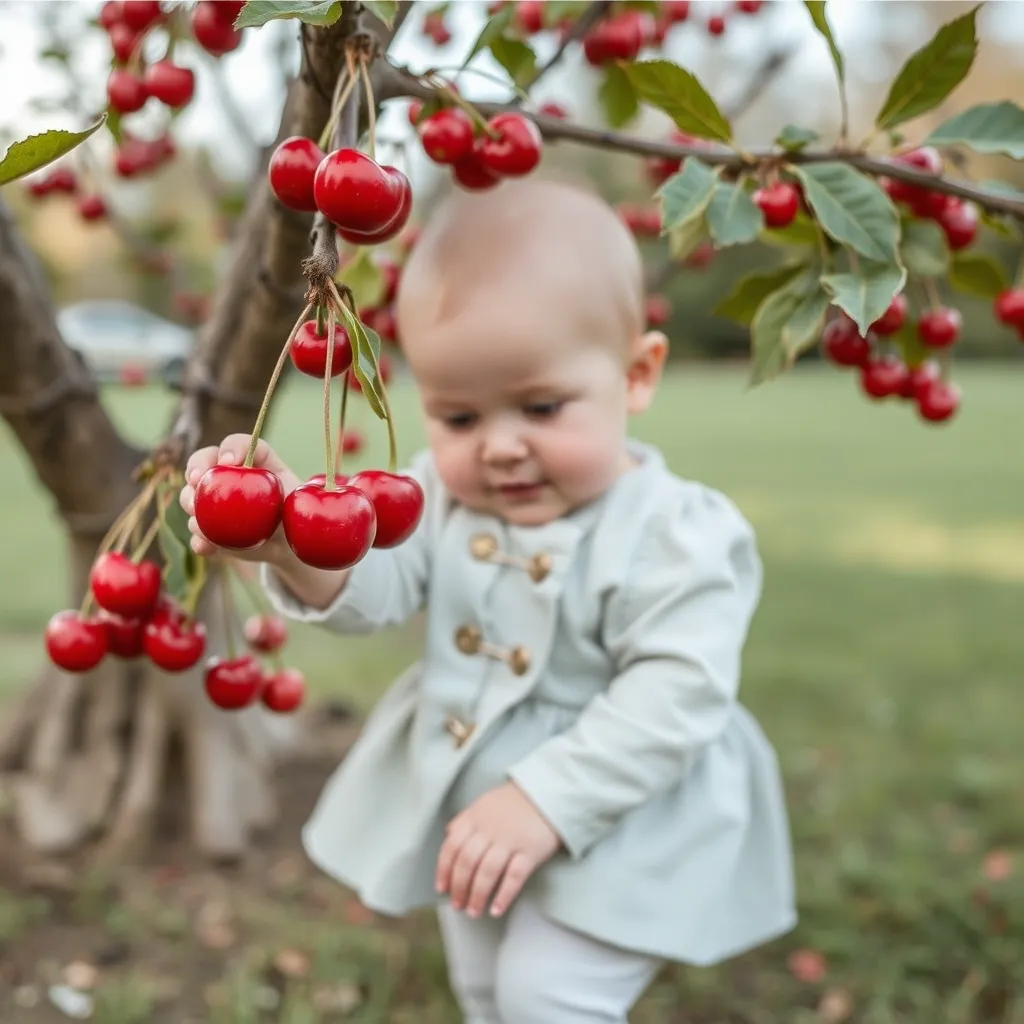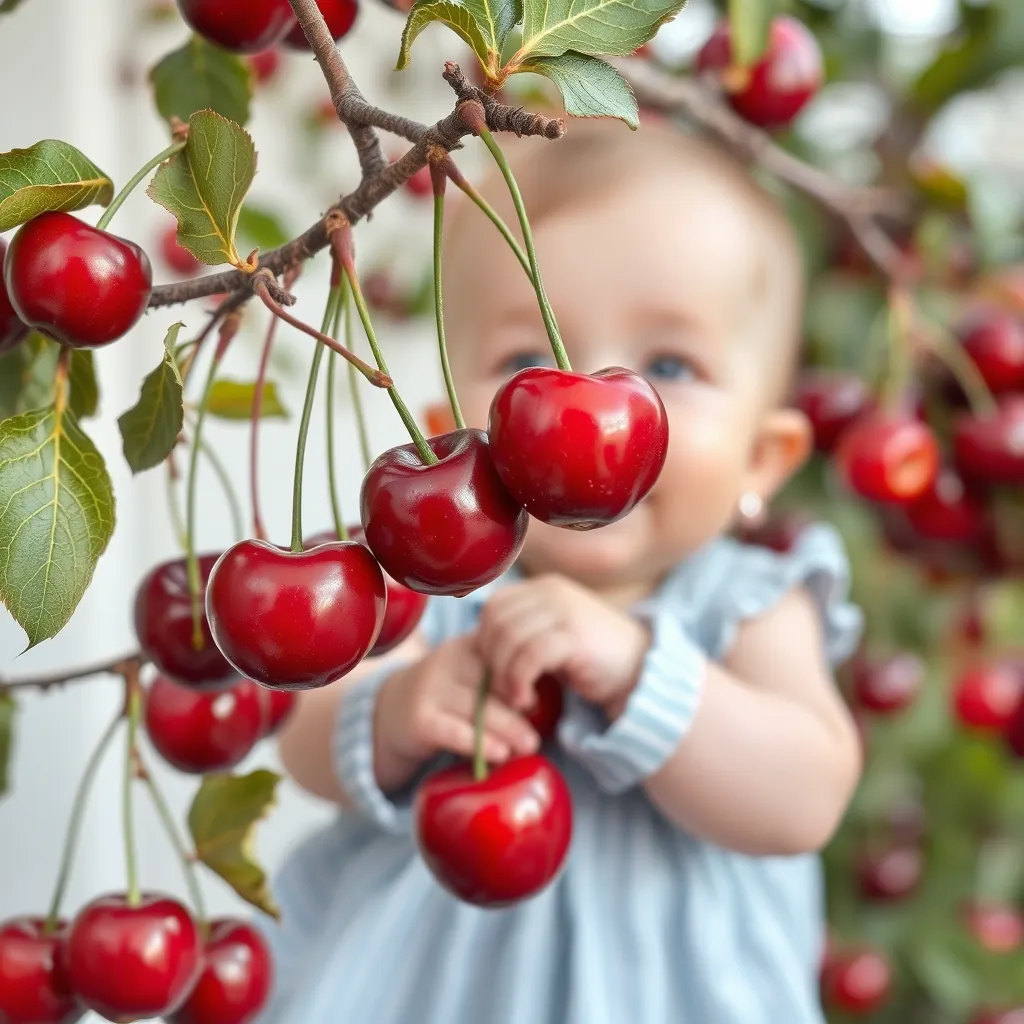Cherry for Babies are delicious and packed with essential nutrients that can benefit your baby’s health. Whether you’re introducing solids or looking for a healthy snack, cherries can be a wonderful addition to your baby’s diet. In this article, we’ll explore the benefits of cherries for babies, how to prepare them, and answer some common questions.
Table of Contents
Key Takeaways
- Cherries are rich in vitamins, minerals, and antioxidants.
- They can help improve sleep quality and boost the immune system.
- Cherries should be introduced after 6 months of age.
- Always ensure cherries are pitted and pureed for younger babies.
- Consult your pediatrician before introducing new foods.
Why Are Cherry for Babies Good?

Cherries are a superfood for babies because they are loaded with essential nutrients. Here are some key benefits:
Rich in Vitamins and Minerals
Cherries are a great source of vitamin C, which helps strengthen the immune system. They also contain potassium, which is important for maintaining healthy blood pressure and heart function. Additionally, cherries are rich in iron, which supports healthy blood production and prevents anemia.
Antioxidant Powerhouse
Cherries are high in antioxidants, which help protect cells from damage caused by free radicals. This can reduce the risk of chronic diseases and support overall health. Antioxidants like anthocyanins, which give cherries their vibrant color, have been linked to improved cognitive function and reduced inflammation.
Supports Sleep Quality
Cherries are one of the few natural sources of melatonin, a hormone that regulates sleep. Including cherries in your baby’s diet can help promote better sleep patterns, which is crucial for their growth and development.
When Can Babies Eat Cherries?

It’s best to introduce cherries to your baby after they reach 6 months of age. By this time, your baby’s digestive system is more developed and better equipped to handle solid foods. Always consult your pediatrician before introducing new foods to ensure they are safe and appropriate for your baby.
How to Prepare Cherries for Babies
Preparing cherries for your baby is easy and can be done in several ways depending on your baby’s age and stage of development.
For Younger Babies (6-8 Months)
For younger babies, it’s important to puree cherries to ensure they are smooth and easy to digest. Here’s a simple recipe:
- Wash the cherries: Rinse the cherries under cold water to remove any dirt or pesticides.
- Pit the cherries: Remove the pits using a cherry pitter or a small knife. Pits can be a choking hazard, so it’s crucial to remove them completely.
- Cook the cherries: Boil the pitted cherries in a small amount of water until they are soft and tender.
- Puree the cherries: Use a blender or food processor to puree the cooked cherries until smooth. Add a little water if needed to achieve the desired consistency.
For Older Babies (9-12 Months)
Older babies can enjoy mashed or chopped cherries. Here’s how to prepare them:
- Wash and pit the cherries: As with younger babies, make sure to wash and pit the cherries thoroughly.
- Mash the cherries: Use a fork or potato masher to mash the cherries until they are soft and easy to eat. You can also chop them into small pieces if your baby is ready for finger foods.
Cherry Recipes for Babies
Here are a couple of easy and nutritious recipes that incorporate cherries into your baby’s diet:
Cherry and Banana Puree
This sweet and creamy puree is perfect for younger babies.
- 1 cup pitted cherries
- 1 ripe banana
- 2 tablespoons water
- Boil the pitted cherries until soft.
- Puree the cooked cherries and banana together in a blender or food processor.
- Add water to achieve the desired consistency.
Cherry and Oatmeal Porridge
This hearty porridge is ideal for older babies who are ready for more textured foods.
- 1/2 cup rolled oats
- 1 cup water or breastmilk
- 1/2 cup pitted and chopped cherries
- 1 teaspoon honey (for babies over 12 months)
- Cook the oats in water or breastmilk according to package instructions.
- Stir in the chopped cherries and cook for an additional 5 minutes.
- Sweeten with honey if desired and serve warm.
FAQs About Cherries for Babies
Can babies eat raw cherries?
Raw cherries can be a choking hazard for babies, especially those under 12 months old. It’s best to cook and puree cherries for younger babies and chop them into small pieces for older babies.
Are cherries allergenic?
While cherries are generally safe for most babies, some may experience allergic reactions. Common symptoms include rash, itching, and difficulty breathing. If you notice any of these symptoms, stop feeding cherries and consult your pediatrician.
Can cherries cause constipation in babies?
Cherries are high in fiber and usually help prevent constipation. However, if your baby is prone to constipation, introduce cherries gradually and monitor their bowel movements. If constipation persists, consult your pediatrician.
Can I freeze cherry puree?
Yes, you can freeze cherry puree for later use. Pour the puree into ice cube trays and freeze. Once frozen, transfer the cubes to a freezer bag and store for up to 3 months. Thaw in the refrigerator or at room temperature before serving.
Conclusion
Cherry for Babies are a delicious and nutritious addition to your baby’s diet. They are rich in vitamins, minerals, and antioxidants, and can help improve sleep quality and boost the immune system. Always prepare cherries safely and consult your pediatrician before introducing new foods. With a little preparation, your baby can enjoy the sweet and healthful benefits of cherries.
For more information on introducing solids and other healthy foods for babies, check out our articles on Introducing Solids to Your Baby and Healthy Snacks for Babies.
Stay tuned for more tips and recipes to keep your baby happy and healthy!











